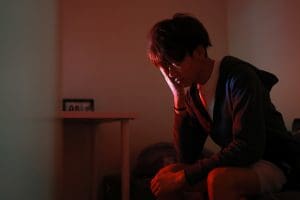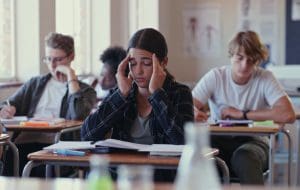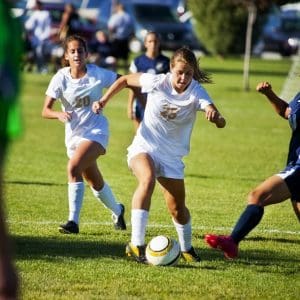Concussion Symptoms and Testing
A concussion is a very challenging brain injury that can affect both an individual’s physical and cognitive function. The symptoms can begin immediately at the time of injury or over the course of the next few hours or days. Depending on the severity of the concussion those symptoms can also linger for weeks into months.
Some of the most common concussion symptoms are headache, dizziness, light sensitivity, noise sensitivity, fatigue, decreased balance, difficulty concentrating, decreased memory recall, increased irritability, and depression to name a few.
If the concussion occurs at a sporting event, typically the training staff will administer a field concussion test like the Sport Concussion Assessment Test 2 (or SCAT-2). This assessment covers physical attributes, emotional attributes, and cognitive attributes to immediately determine if an athlete has had a concussion and if so the severity of the concussion based on an overall score. Field tests like the SCAT-2 are great at identifying an issue at a time with limited information that is available at a sporting event.
If an athlete has been identified as having a concussion another testing parameter is Impact testing. This is typically performed at the High School level and above. Impact testing is a computerized test that is first performed in the Athlete’s offseason to create a “baseline” for that athlete. It tests cognitive skills, reaction times, and processing speeds over a variety of questions/activities. When an athlete has a suspected concussion they will be partake in another Impact test to compare and contrast their current score with their baseline score. The impact test can be instrumental in helping identify a concussion as well as provide data for return to sport. However, unfortunately it is commonplace for High School Athletes to not take the initial Impact Testing seriously in the off season thus their actual baseline may not be known. In this situation the athlete is at a disadvantage since their baseline may not be accurate and that is being used to determine their current status.
Finally, anyone with a concussion should see a Neurologist or a Doctor specializing in Concussion treatment to further identify the severity of their concussion, and begin to get treatment.
To Rest or Not to Rest
For years there was no concussion management. Typically after anyone suffered a concussion the only treatment was to wake them up periodically over the course of the first couple nights to make sure they were ok. They were instructed to immediately return to work, school, and their sport.
 As head injuries in sports like professional football began to garner more of a national interest the medical community began to see increased risk, easier susceptibility, and increased severity of symptoms to getting additional concussions with an earlier return to sport. As a result people who had gotten a concussion were instructed to rest, avoid high levels of concentration, avoid light and noise, and to reduce their overall activity levels. The result was a decrease in additional concussions but there was also an increase in recovery time. People reported lingering symptoms typically for weeks to months instead of hours or days.
As head injuries in sports like professional football began to garner more of a national interest the medical community began to see increased risk, easier susceptibility, and increased severity of symptoms to getting additional concussions with an earlier return to sport. As a result people who had gotten a concussion were instructed to rest, avoid high levels of concentration, avoid light and noise, and to reduce their overall activity levels. The result was a decrease in additional concussions but there was also an increase in recovery time. People reported lingering symptoms typically for weeks to months instead of hours or days.
However, over the past few years more and more research has begun to emerge indicating that an earlier return to physical and mental activity reduced concussion symptoms and created faster concussion recovery. As a result, more people in the medical community have begun to recommend going to Physical Therapy for their post concussion recovery and return to sport.
Physical Therapy for Post Concussion
At BeneFIT Physical Therapy our post concussion recover and return to sport protocol is pretty straight forward. We begin by using a baseline test to understand your current symptoms at the time of your evaluation. From there your program will be focused on both cardiovascular, strength, and balance exercises based on the results of your baseline assessment. You will be continuously monitored throughout your session for any concussion symptoms (physically, mentally, and emotionally). If any arise then your session is suspended, you are reassessed, and a determination is made at that time on whether to continue for the day. Provided there are no changes in your symptoms at the end of your session you will be retested using the same baseline testing to determine any changes post session compared to pre-session.
In the event that any symptoms are present we utilized a variety of mechanical and manual techniques to help reduce your symptoms, provide education on self-treatment techniques you can perform to reduce your symptoms yourself, and provide you with a home exercise program.
As you progress through your physical therapy your exercises will progress becoming more challenging, occur over a longer duration, and provide greater instability until you are performing sport specific training without any occurrence of symptoms during or afterwards. The pre and post testing ensures a careful, smart progression that is 100% determined by your individual scoring. This way you, your family, your Doctors, training staff, and coaches will have no reservations in your return to sport once cleared by our Physical Therapists!
If you or someone you know has suffered a concussion and are looking for a proven, individualized plan of attack to recover post-concussion to get you back to playing sports or your regular life give BeneFIT Physical Therapy a call!





